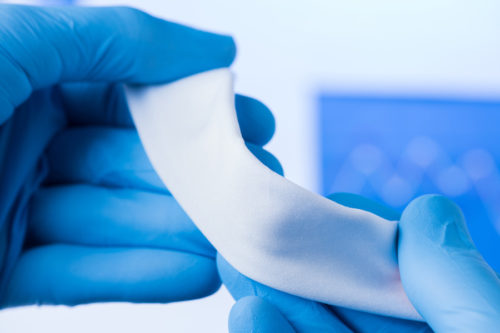BRM Finds Silver Lining in the National Pandemic Emergency
Bally Ribbon Mills has employed several innovative strategies to meet customer needs despite the many challenges that the pandemic has presented to U.S. manufacturers. A recent article in Harvard Business Review, “Why Constraints Are Good for Innovation,” describes how responding to such challenges can actually drive innovation, and BRM demonstrated this principle in 2020 by transforming its sales and manufacturing processes for an environment suddenly requiring remote office work and social distancing on the plant floor.
The new processes have achieved many benefits in efficiency and agility that have become part of the “new normal” that will outlast the pandemic. For example, BRM needed to migrate its paper-based project planning, control and feasibility (PPCF) process to an online system that could be accessed by employees working remotely. The paper process had offered limited visibility to team members not directly involved with the project, and the flow would be temporarily blocked whenever a stakeholder was traveling or on vacation and could not move the paper to the next stage of the process.
The new online system has many benefits, including allowing the project initiator to continually monitor progress and address any delays and to reroute the flow to accommodate staffing availability changes. The online system has reduced the time to complete the process by as much as 80%!
This enhanced efficiency enabled BRM to quickly develop a new structural polyester tie-down for temporary medical and first-responder structures during the pandemic, even though the order came shortly after BRM had ceased normal operations and the entire sales, customer service, and R&D teams had begun working from home.
Learn more about BRM’s new processes related to COVID-19 in Manufacturing Tomorrow Magazine:
www.manufacturingtomorrow.com/news
By Sarah Islam, Bally Ribbon Mills







